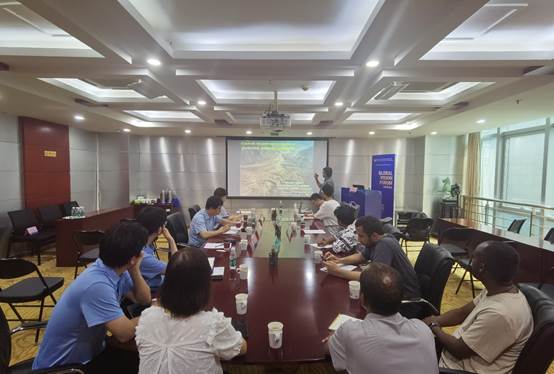
On June 17, 2025, Prof. Marwan Hassan
from the Department of Geography at the University of British Columbia, Canada,
visited the China Institute of Water Resources and Hydropower Research (IWHR)
and presented a seminar on “Controls on sediment dynamics in glacierized,
mountain catchments.” Prof. Hongling Shi, Division Chief of IRTCES, hosted the
Seminar, with participants of experts and graduate students from the
International Research and Training Center on Erosion and Sedimentation
(IRTCES) and IWHR.
In his presentation, Prof. Hassan presented advanced
understandings of sediment dynamics, with a focus on the controls, variability,
and interactions of sediment supply, storage, and yield in glacierized mountain
catchments. The work was motivated by a need for greater understanding of how glacial
landscapes respond to changing conditions, such as climate change and land use
changes. He introduced several important findings, including: how do landscape
configurations –such as landform type, confinement, and sediment storage
-govern the geomorphic response of channels to flooding; and sediment source
partitioning and budgeting over historical timescales in a glacierized,
mountain catchment.
During the Q&A session, participants
engaged in discussions regarding the movement mechanisms of sediment in
glacierized mountain rivers, modeling theories, field observations, and
research case studies.
Professor Marwan Hassan’s research covers a wide range of topics
in geomorphology and hydrology, including landscape evolution, the interaction
between hill-slopes and channels, channel stability and morphology, river
sediment transport and sediment yield, stream ecology, in-channel wood
dynamics, and modeling fine sediments and their interactions with stream
physical and biological characteristics. He has worked on fundamental processes
involving flow and sediment transport and contributed to the advancement of
river science at various scales, from sediment grains to watersheds, and in
fields outside fluvial geomorphology such as urban hydrology, hyporheic flow,
desert floods, water quality, and water resources. He received the
International Qian Ning Prize in 2019 and has been named a Union Fellow by the
American Geophysical Union (AGU) since 2023.

